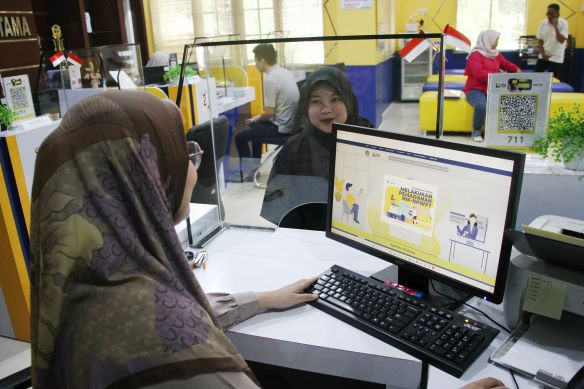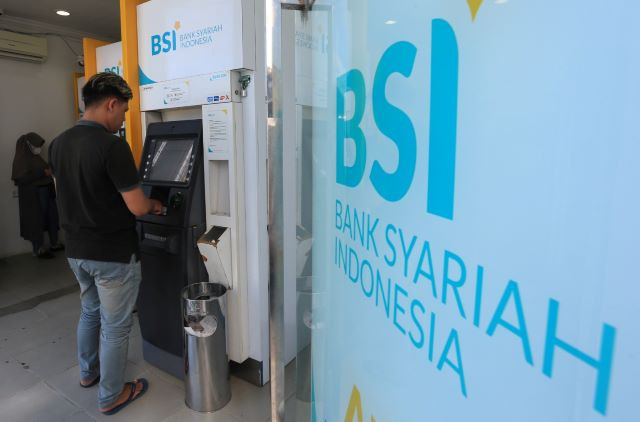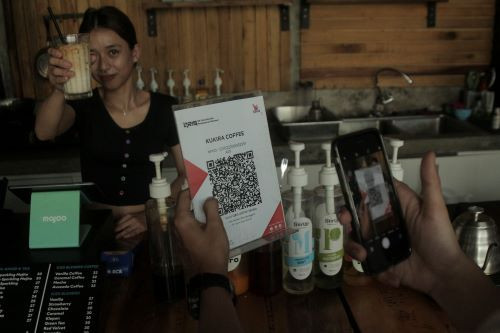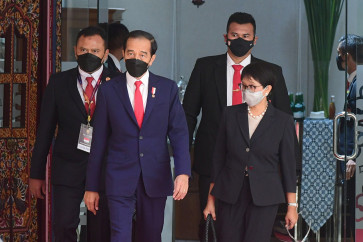Indonesia’s foreign policy: Strategic, not rhetorical
President Jokowi’s speech at the 76th UN General Assembly presented Indonesia's foreign policy, with its strategic direction, as representative of the assembly's priorities.
Change Size
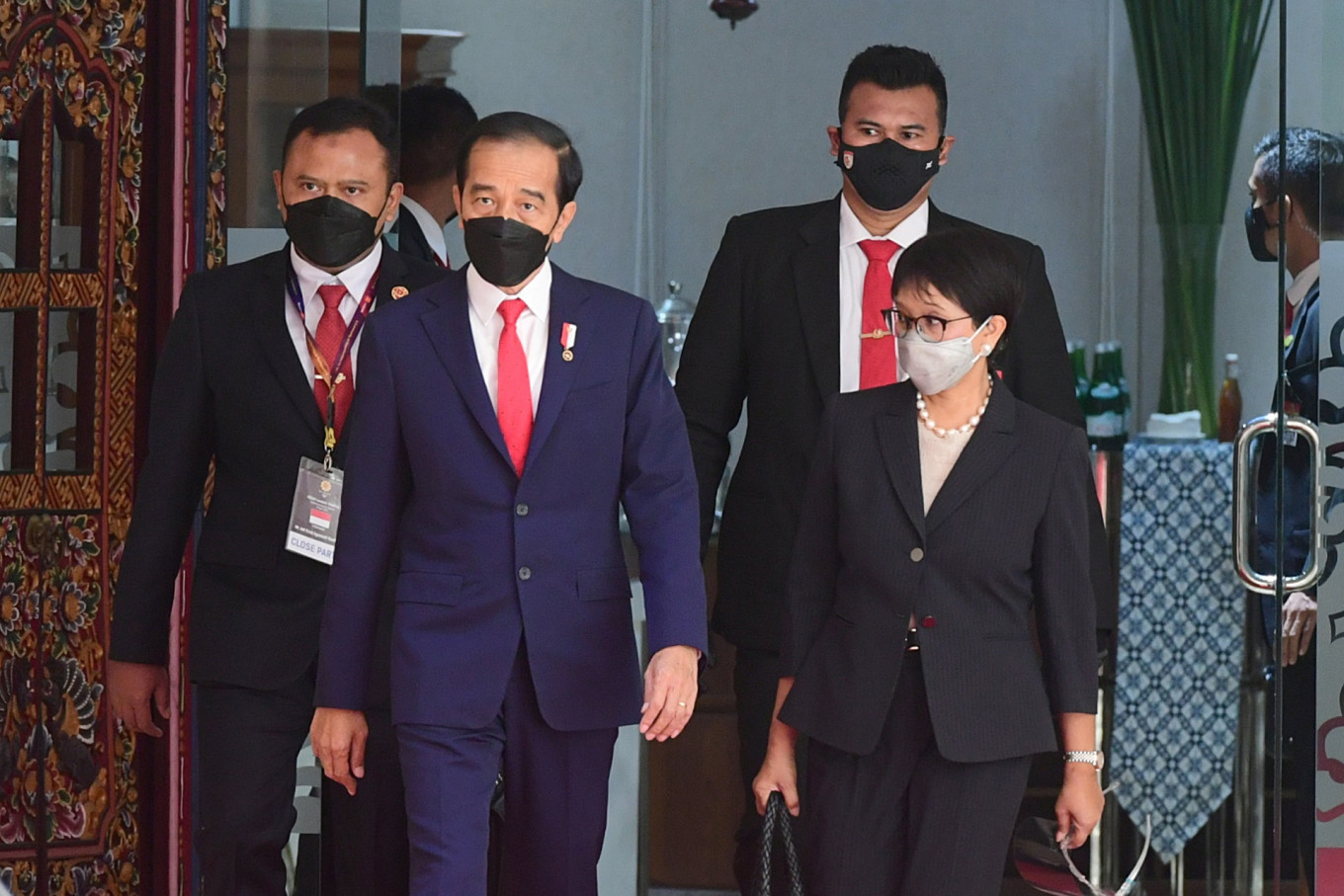 President Joko Widodo (second left) and Foreign Minister Retno Marsudi (right) attend the ASEAN Leaders' Meeting on April 24, 2021 at the ASEAN Secretariat in South Jakarta. (Handout/Muchlis Jr/Indonesian Presidential Palace via REUTERS)
President Joko Widodo (second left) and Foreign Minister Retno Marsudi (right) attend the ASEAN Leaders' Meeting on April 24, 2021 at the ASEAN Secretariat in South Jakarta. (Handout/Muchlis Jr/Indonesian Presidential Palace via REUTERS)
R
ené L. Pattiradjawane’s article [“Why Indonesia’s diplomacy fails to impress”] in the Oct. 5, 2021 edition of The Jakarta Post is both incorrect and unethical. For one, criticism should not be associated with a judgement that degrades a particular disorder. The main problem with René piece, though, is the lack of both facts and alternative ideas.
The author argues that President Joko “Jokowi” Widodo’s speech before the recent United Nations General Assembly (UNGA) contained no concrete arguments to address either the economic crisis or the pandemic. Indonesia’s foreign policy, according to René, fails to address global geopolitical issues.
President Jokowi’s speech, in fact, represented the priorities of the 76th UNGA: recovering from the coronavirus disease, rebuilding sustainability, responding to the needs of the planet, respecting the rights of all and revitalizing the UN. It is rather unusual for a critic to assess a complex foreign policy from a 7-minute speech.
From the perspective of geopolitics, the above priorities were already anticipated in the World Economic Forum (WEF) Global Risk Report 2021. For instance, the pandemic, economic recovery, climate resilience and the fight against intolerance are qualified as global risks, according to the WEF, with the highest scores in likelihood and impact. Other priorities, including interstate conflict, scored above average in terms of impact but below average in likelihood.
So there is a link between the UN priorities as mentioned in President Jokowi’s short speech and the geopolitical reality.
As for a “common thread”, one can observe the interconnection between the pandemic, economic recovery and climate change, which is quite straightforward, since each one impacts the other two.
In dealing with the pandemic, Indonesia has developed an effective policy that is neither a total lockdown nor “pandemic denial” (anti-vaccine and anti-mask). Indonesia has taken a path that combines an enforceable health protocol and the multi-level public activity restrictions (PPKM).




